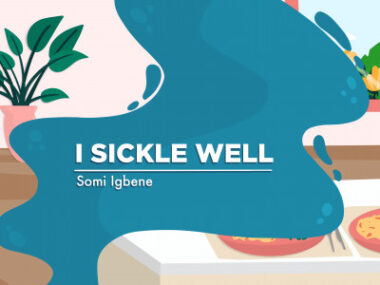Embracing a healthier diet to support my cousin with sickle cell
Improving nutrition may be one way to reduce crises, fight anemia
Written by |

New Year’s resolutions were never really my thing. In the past, my attempts often fizzled out quickly — like the gym membership that gathered dust by February. To avoid disappointment, I swapped out strict goals for a list of hopeful, more gentle aspirations. This year, topping that list was a heartfelt wish for Ada, my cousin with sickle cell disease, to experience fewer crises, and for my family to enjoy overall wellness.
I’ve always been deeply involved in Ada’s care, a journey that’s as much about learning as it is about adapting. But this new year, I decided to break my own rule and set one firm resolution: to embrace healthier eating.
With my two young boys at home, notorious for their dislike of vegetables, this change was nothing short of a culinary crusade. I was determined, fueled by the knowledge that a diet rich in nutrients would not only benefit Ada in her battle with sickle cell but also fortify the health of our entire family. This resolution was more than a diet change; it was about transforming our family’s lifestyle to better support Ada’s health journey.
The power of nutritious foods
Sickle cell disease has thrown various challenges at Ada, particularly anemia, which often leaves her exhausted. There have been times when the situation escalated to the point of needing regular blood transfusions. Those moments were tough for both of us.
The initial days after the diet change were rough, with my kids protesting at the dinner table and the realization of how costly fresh vegetables can be in comparison with processed foods. It was almost comical, as I considered growing our own farm — something my mother-in-law, who has been a pillar of encouragement, often suggests.
Despite the hurdles, I’m not ready to give up — not just to avoid disappointing my mother-in-law, but because, in the few weeks since our diet change, I’ve already noticed a remarkable improvement in Ada’s health. She’s lost her pallor, and her hemoglobin levels have risen. Maybe it’s a blend of optimism and bias, but something tells me this year is off to a good start, particularly with fewer health crises for Ada.
While medical supplements remain crucial, pairing them with the right diet will lead to even better improvements in Ada’s blood levels. We’ve embraced leafy greens and iron-fortified cereals, turning them into dietary staples. These foods are known to be instrumental in fighting anemia and maintaining good health.
In addition to focusing on iron-rich foods, we’ve also concentrated on folic acid and antioxidant sources such as fresh fruits and beans, understanding their crucial role in blood health. Hydration has become another key focus, with colorful water bottles that encourage the kids to drink more and fruit-infused waters that make it an enjoyable part of our routine.
Living in Nigeria, where malaria is prevalent, we’ve learned that while sickle cell offers some protection against the disease, it’s not fail-safe. Malaria episodes can worsen anemia, so we’ve adopted preventive measures to keep Ada protected, especially at night, such as the use of mosquito nets and proper clothing.
As we continue to explore and incorporate more vegetables and nutritious foods into Ada’s diet, our goal is to manage her anemia effectively and maintain her well-being. I’m hopeful that committing to eating right and staying hydrated is a lifestyle change I can sustain. We’re learning and trying, step by step, on this path to health.
Note: Sickle Cell Disease News is strictly a news and information website about the disease. It does not provide medical advice, diagnosis, or treatment. This content is not intended to be a substitute for professional medical advice, diagnosis, or treatment. Always seek the advice of your physician or other qualified health provider with any questions you may have regarding a medical condition. Never disregard professional medical advice or delay in seeking it because of something you have read on this website. The opinions expressed in this column are not those of Sickle Cell Disease News or its parent company, Bionews, and are intended to spark discussion about issues pertaining to sickle cell disease.




Leave a comment
Fill in the required fields to post. Your email address will not be published.